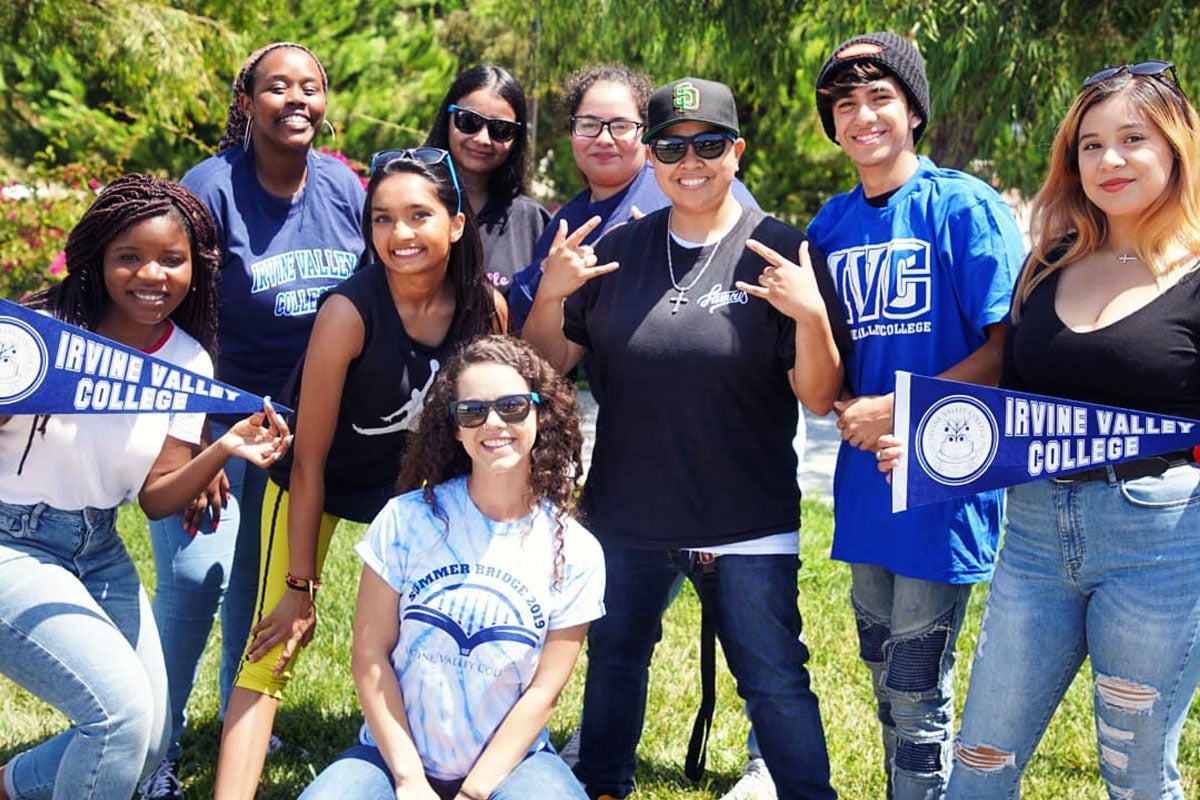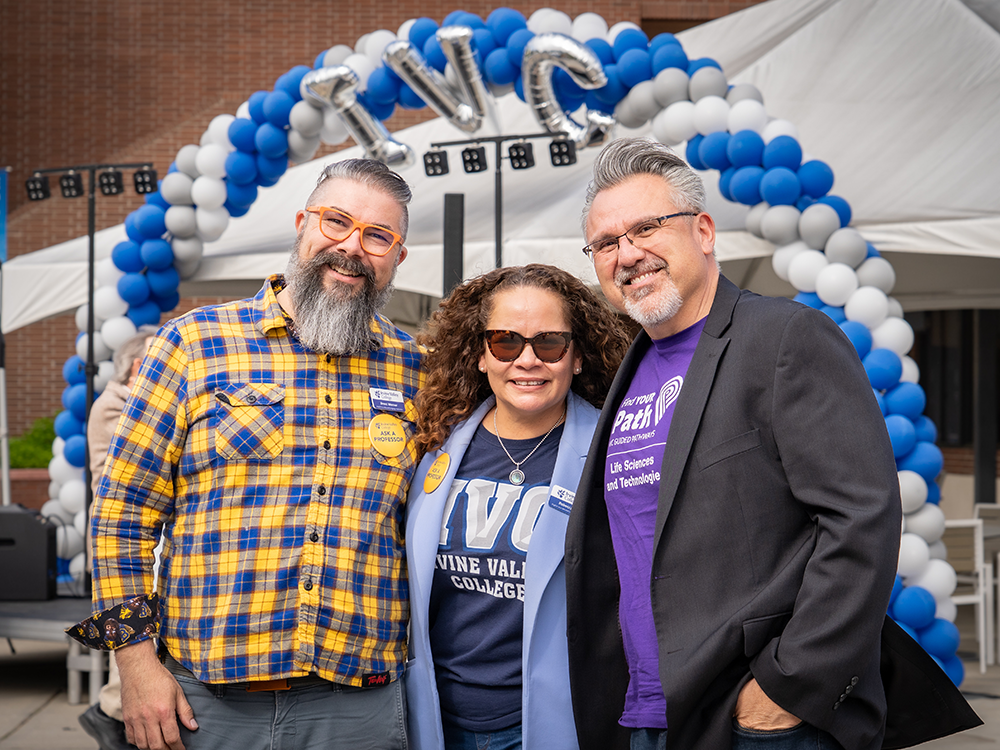- Seek medical attention as soon as possible. If this is an emergency, call 911.
- You can also call Campus Police at 949-451-5234.
- You can report the incident to the Irvine Police Department at 949-724-7000 and/or to Dr. Martha McDonald, Vice President for Student Services and Title IX officer, at 949-451-5214.
- If the incident happened outside Irvine, contact the police department for that area.
- If you wish to pursue a complaint against the alleged perpetrator, or if you wish to discuss your options, contact Dr. Martha McDonald, Vice President for Student Services.
- If the incident involves IVC faculty or staff, first file a complaint with the Office of Student Services then file a complaint with Human Resources for South Orange County Community College District at 949-582-4850.
Yes, you may take action through both the campus disciplinary system and the criminal justice system. IVC encourages complainants to pursue criminal action for incidents of sexual harassment that may also be crimes under California law. IVC will also assist a complainant in making a criminal report and will cooperate with law enforcement agencies if a complainant decides to pursue the criminal process to the extent permitted by law. However, a complainant may also choose not to pursue criminal action, and under most circumstances, police will not force a complainant to pursue charges if he/she is not willing to do so.
Physical evidence of a sexual assault must be collected from the complainant’s person within 72 hours, though evidence can often be obtained from towels, sheets, clothes, etc. for much longer periods of time.
If you believe you have been a victim of a sexual assault, go to a medical facility capable of collecting medical/legal evidence in cases of sexual assault, and has specially trained staff to do so before washing yourself or your clothing. Anaheim Regional Medical Center (714-774-1450) is the only hospital in Orange County that performs sexual assault exams. You can also contact your local law enforcement agency or a crisis hotline for assistance. Having the evidence collected in this manner will help keep all your options open, but will not obligate you to any course of action. Collecting evidence can assist authorities in pursuing criminal charges if you decide to later.
If you have changed clothing since the assault, bring the clothing you had on at the time of the assault to the hospital in a clean, sanitary container such as a clean paper grocery bag or wrapped in a clean sheet (plastic containers do not breathe, and may render evidence useless). If you have not changed clothes, bring a change of clothes, if possible, as authorities will likely keep the clothes you are wearing as evidence.
If you believe that you have experienced a non-consensual sexual contact, but are unsure of whether it was a violation of IVC’s sexual harassment policy, contact the nurse or psychologist at the Health and Wellness Center, the vice president for student services, Campus Police or another trusted administrator who can help you define and clarify the event(s), and advise you of your options.
The privacy of all parties to a complaint of sexual harassment must be strictly observed, except insofar as it interferes with IVC’s obligation to fully investigate allegations of sexual harassment. Where privacy is not strictly kept, it will still be tightly controlled on a need-to-know basis. Dissemination of information and/or written materials to IVC faculty or staff not involved in the complaint procedure is not permitted. Violations of the privacy of the complainant or the respondent may lead to conduct action by IVC.
IVC must statistically report the occurrence on campus of major violent crimes, including certain sex offenses, in an annual report of campus crime statistics. This statistical report does not include personally identifiable information.
CONFIDENTIALITY: Under California law, communications with some individuals are confidential. This means that any information shared by the complainant with a specific individual will not be used against the individual in court or shared with others. This individual cannot be subpoenaed to testify against the complainant in a court of law.
Students should always confirm whether confidentiality applies to the communication. Generally, confidentiality applies when a student seeks services from the following persons:
- Psychological counselor (including psychologists at the Health and Wellness Center)
- Personal attorney
- Religious/spiritual counselor
PRIVACY: IVC is committed to creating an environment that encourages students to come forward if they have experienced any form of sexual harassment. The college will safeguard the identities of students who seek help or who report sexual harassment.
An IVC employee cannot guarantee complete confidentiality, but the individual can guarantee privacy. Information is disclosed only to select college personnel who have an essential need to know in order to carry out their responsibilities. As is the case with any educational institution, IVC must balance the needs of the individual student with its obligation to protect the safety and well-being of the community at large. Therefore, depending on the seriousness of the alleged incident, further action may be necessary, including a campus security alert. The alert, however, would never contain any information identifying the student who brought the complaint.
Yes, if you want formal disciplinary action to be taken against the alleged respondent. No, if you choose to respond informally and do not file a formal complaint. Complainants should be aware that not identifying the respondent may limit IVC’s ability to respond comprehensively
Yes, if you file a formal complaint. Sexual harassment is a serious offense and the respondent has the right to know the identity of the complainant. If there is a hearing, IVC provides options for questioning without confrontation.
No, if you do not provide a specific name or identity. In this situation the issue is counted in IVC’s reporting data, but no formal investigation or confrontation can be conducted.
It is a violation of IVC’s policy to retaliate in any way against an individual or a group because the individual or group reported an allegation of sexual harassment or harassment.
The college recognizes that retaliation can take many forms, may be committed by an individual or a group against an individual or a group, and that the respondent can also be the subject of retaliation by the complainant or a third party. IVC will take immediate and responsive action to any report of retaliation and may pursue disciplinary action as appropriate. An individual reporting sexual harassment or harassment is entitled to protection from any form of retaliation following a report that is made in good faith, even if the report is later not proven.
It is never acceptable to force, threaten or coerce someone into having sex, even if they are in a relationship. Just because you have been intimate with someone in the past does not automatically mean you give consent for any and all future sexual activity.
Whether you are the complainant or the respondent, IVC’s primary relationship is to the student and not the parent. However, in the event of major medical, disciplinary or academic jeopardy, students are strongly encouraged to inform their parents. College officials will directly inform parents when a student requests it, in certain instances where a health or safety emergency exist, or if the college determines such communication is necessary.
If your respondent attends one of your classes, you may change classes. Dr. Martha McDonald, vice president for student services and Title IX officer, will work with the Registrar’s Office to help switch your classes and assist in getting extensions on course work if necessary.
IVC’s primary concern is the health and safety of its students. When conducting an investigation of an alleged sexual assault, the college’s focus will be on addressing the sexual assault and not the lesser policy violations that may be discovered or disclosed. IVC may, however, provide referrals to counseling or require other educational options.
The use of alcohol and/or drugs by either party will not diminish the responsibility of the respondent. However, alcohol and/or other drugs are likely to affect memories and may affect the outcome of a case.
Not unless there is a compelling reason to believe that prior use or abuse is relevant to the present complaint.
The investigation and resolution (including appeal) of all reports will generally be completed in 60 to 90 days. Extenuating circumstances, including the complexity and severity of a complaint, may arise that require the complaint process to extend beyond 90 days. In general, the complainant and the respondent can expect to receive periodic updates. In the event that the investigation and resolution exceed this time frame, the college will notify all parties of the need for additional time and best efforts will be made to complete the process in a timely manner.
If you believe that you have been discriminated against because of your race, color, national origin, disability, age, sex, or religion in programs or activities that HHS directly operates or to which HHS provides federal financial assistance, you may file a complaint with the Office for Civil Rights (OCR). You may file a complaint for yourself or for someone else.
Please know that IVC would like to have the opportunity to solve the issue prior to filing this report so that the college may assist you with all of your needs and offer support.





